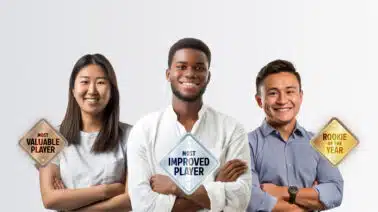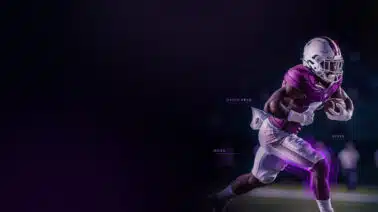Find the right nanodegree program for you.
Start Learning
It can be difficult to get started in tech. We know that. But it’s not as hard as it may seem, and our beginner’s courses offer a great opportunity for novices to get up and running. These courses have few if any prerequisites, and they’ll equip you with the skills and knowledge you need to build your expertise. Whether you’re testing the waters of a new career, reskilling or upskilling to take advantage of a new opportunity, or simply pursuing knowledge and personal betterment, these courses offer approachable, engaging and jargon-free opportunities to add critical skills to your resume. Plus, they’re really fun!
More than anything else, we just want you to not feel intimidated. So please, go through the list below. Find a course that sounds really interesting, and take it! You won’t be disappointed. In fact, you’re going to be amazed by how easy it is to learn, and by how much you learn.
#1. Android Development for Beginners: How to Make an Android App
Android’s growth as a platform is nothing short of remarkable –1 billion activated Android devices and counting! It’s a very exciting world, and learning to create things for Android offers an incredible opportunity for anyone interested in mobile technology and cloud computing. Virtually all future generations will begin their relationships with technology and the internet via a mobile device. This course is a first step towards contributing to that remarkable future, and because we believe in learning by doing, you’ll create your first app by the time you complete the course!
What you’ll get:
You’ll learn the basics of Android and Java programming, and actually create your first real app!
Where you can go:
This could be your first step on the journey to becoming an Android developer! Look out Google, here you come!
#2. Intro to HTML and CSS: Not Your Typical Intro to Web Dev
HTML and CSS are “the building blocks that make up the web” so it’s important to know these languages. But this course offers something more than just learning sets of programming language rules. The mission of this course is to get you not just writing like a developer, but actually thinking like one. That’s why this course is also part of our Front-End Developer Nanodegree program; this is foundational knowledge for a fulfilling career as a developer. But it’s also simply a great way to learn the basics of how to build websites.
What you’ll get:
You’ll learn to build your own website! (a responsive portfolio site with your own CSS framework.)
Where you can go:
From a hobbyist who builds sites for friends to a well-paid career as a Front-End Web Developer, the sky’s the limit once you get these fundamentals down!
#3. Intro to Computer Science: Build a Search Engine & a Social Network
In this course, you’ll do a number of amazing things. You’ll learn Python, which is a very widely-used programming language. And you’ll actually build both a search engine, and a social network. If that sounds difficult or intimidating, have no fear! This course has NO prerequisites when it comes to programming knowledge.
What you’ll get:
You’ll learn and practice key computer science concepts by building your own versions of popular web applications. Whether your interests ultimately carry you towards data, mobile, or web development, you’ll have your foundations in place no matter what.
Where you can go:
If you want to become a software engineer, or collaborate with software engineers, this course is for you. It’s basically your point-of-entry into the world of computer science!
#4. Programming Foundations with Python: Learn Object-Oriented Programming
This course isn’t strictly a beginner’s course, as it does ask enrollees to have some familiarity with basic programming ideas (if statements, loops, functions). But beginners were definitely front-of-mind when the instructors designed the course:
“We’ve heard that programming can be intimidating for newcomers, and we’ve created this course to make sure that you have a great learning experience! You’ll learn actively with our mini projects, which you’ll be able to share proudly with your friends. You’ll also learn important programming concepts one by one, with no surprises or leaps of logic along the way.”
All our courses are project-based, and this particular course boasts one of the most entertaining — and useful! — projects that our students create, the Profanity Editor!
Imagine it’s late at night and you get an email from your boss, requesting your help with something. You reply, “I can take a shot at it” but accidentally end up including an awkward word (sh*t). Oops. We will write a python program that detects curse words, and saves clumsy email writers from embarrassing moments.
What you’ll get:
In this introductory programming class, you’ll learn Object-Oriented Programming, a must-have technique for all software engineers.
Where you can go:
The whole world of programming will be open to you after you complete this course; you may even decide you want to become a Full-Stack Web Developer!
#5. Intro to Java Programming: Building Programs with Classes & Objects
Java is one of the most popular programming languages in use today. We mentioned Android above; Java is the core language used in developing Android apps. If you’re contemplating a career in app development, or as a back-end web developer, learning Java is critical. But even if you’re not necessarily thinking career at this point, Java’s popularity and omnipresence make this a great course for those just starting with code.
What you’ll get:
You’ll learn and practice essential computer science concepts using the Java programming language.
Where you can go:
This course will provide you with a solid foundation in computer science, as well as set you on the path for success as a software engineer. Knowing Java is a critical asset in so many fields!
#6. Linux Command Line Basics: Getting Started with the Shell
This is another course that isn’t for complete novices. The instructors of this course do require that students have at least beginner-level experience in a programming language such as Python or JavaScript. But it IS a course designed for beginners to the Linux system and the command-line interface. The instructors consider this course material to be “foundational web knowledge” and as they point out in their course description: “many of our intermediate and advanced courses rely on a familiarity with the command-line interface to run servers, work with version control systems and more.” If you envision a future that involves you getting your own web applications not only up and running but also operating efficiently, this is the course for you!
What you’ll get:
You’ll learn the basics of the command line interface of a Linux server.
Where you can go:
The road to installing, configuring, and troubleshooting servers runs through the fundamentals you’ll learn in this class, because most servers on the Internet today run on Linux or other Unix-like systems. This is foundational web knowledge!
#7. Make Your Own 2048: Your Tiles. Your Styles.
Honestly, it’s hard to introduce this course to you in better fashion than the instructors themselves do, so here’s an excerpt from their course description:
Pretty cool indeed!
What you’ll get:
The purpose of this class is to have fun learning how to quickly and easily take an existing open source program, make some changes, and create something that looks and feels completely new.
Where you can go:
Everywhere! This course is designed to help someone who has never seen computer code take their first steps into the world of programming and web-development.
Our course designers have built some really amazing beginner’s courses to help get you up and running with tech. So now it’s your turn to start building! Enroll in any of these classes today, and start building not just new projects, but a new future.





